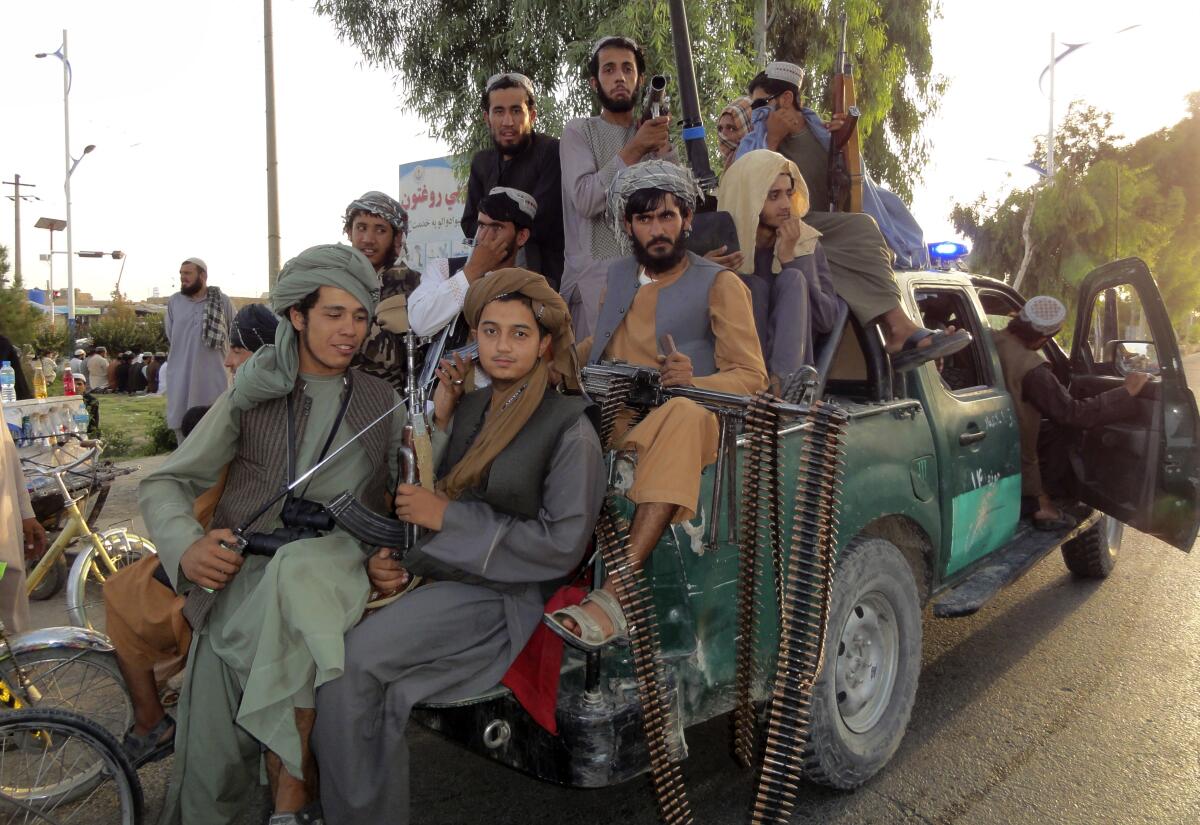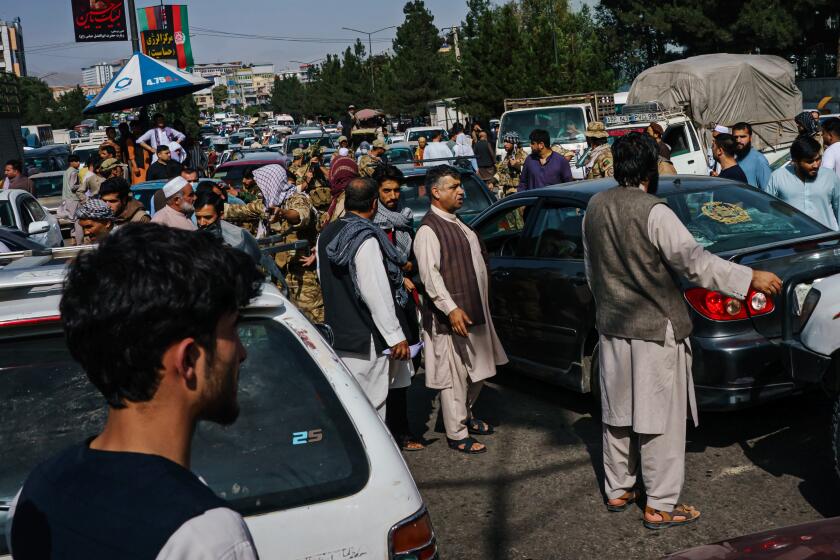‘The only thing we have is our God’: A young Afghan woman fears for the future

- Share via
DUBAI, United Arab Emirates — Hunkering indoors and watching her country fall to the Taliban, one young woman in Afghanistan’s capital of Kabul described on Sunday the anxiety, fears and dashed hopes her generation feels as embassies evacuate staff and the government all but crumbles.
The day wasn’t supposed to be like this. On Sunday morning, Aisha Khurram made her way to Kabul University, where she is just two months shy of graduation. Before she could reach her class, the 22-year-old was turned back and told to head home.
Life in the Afghan capital of 6 million people rapidly deteriorated Sunday, just as it had across much of the country over the last several weeks amid a Taliban blitz that saw the group capture one provincial capital after another. By day’s end Sunday, the government in Kabul had collapsed and the Taliban had taken over.
Khurram, 22, said female students who’d made it to Kabul University early Sunday were told goodbye by their professors, who said they were unsure if the young women would be allowed to return and unsure whether, if classes resumed, women and men would be allowed to study together.
“The future is at stake. Our lives are at stake,” Khurram said, speaking from her home in Kabul. Electricity in her neighborhood had been out all day as she spoke to the Associated Press over her cellphone.
She’d hoped to serve her country after graduation, having spent the past several years studying international relations, working as a human rights defender, volunteering and even speaking at the United Nations.
Young Afghans fear losing new freedoms and their lives to the Taliban as U.S. troops prepare to exit.
“Everything I did was for a vision and the future,” she said.
“The fight for our rights, the things we advocated for during the peace process — they are taking the back seat,” Khurram said. “The only thing people are thinking about is how to survive here or how to escape.”
But for her and millions of other Afghans, there is no way out. With land borders closed, visa costs out of reach for most and embassies shuttering, there’s a feeling that “everybody turned their back on the Afghan people.”
“Neither government nor Taliban— none of them represent us,” she said. “The only thing we have is our God.”
In Kabul, hunkering down and fearing the worst as the Afghan capital changes hands.
Khurram had just one word to describe her feeling as Western embassies in Kabul emptied: “betrayal.”
She said she had believed in the prospects of U.S.-backed peace talks that were unfolding between the government, Taliban and others in Qatar. She’d advocated strongly for the inclusion of diverse voices in those talks aimed at mapping out Afghanistan’s future.
As the Taliban pushed deeper into Kabul, she said it was clear to her that the U.S. used those talks as cover for its withdrawal.
“Right now I feel naive,” Khurram said. “I’m very much sorry for my generation and myself for trusting them.”
More to Read
Sign up for Essential California
The most important California stories and recommendations in your inbox every morning.
You may occasionally receive promotional content from the Los Angeles Times.















